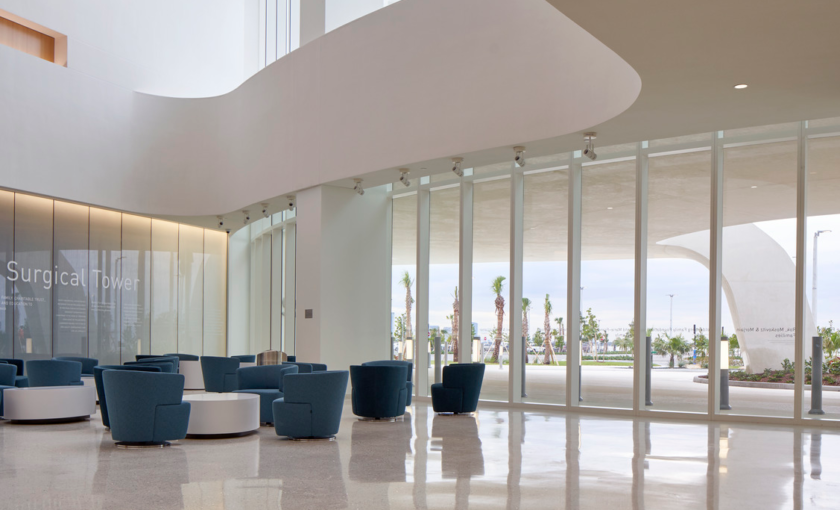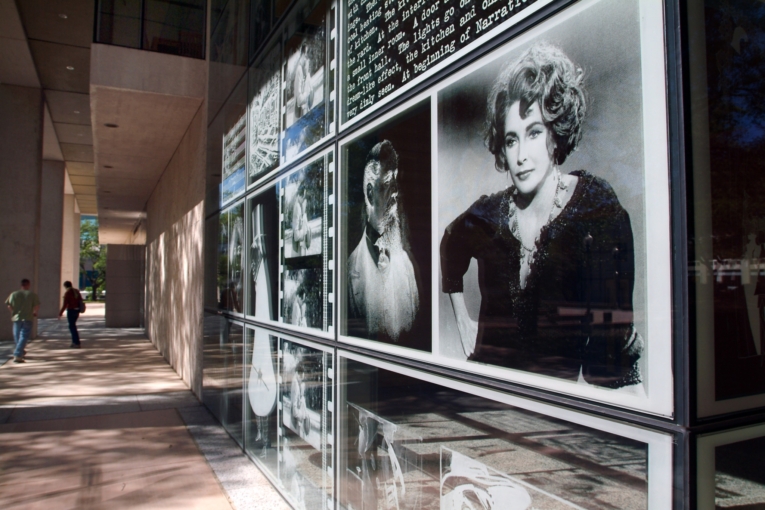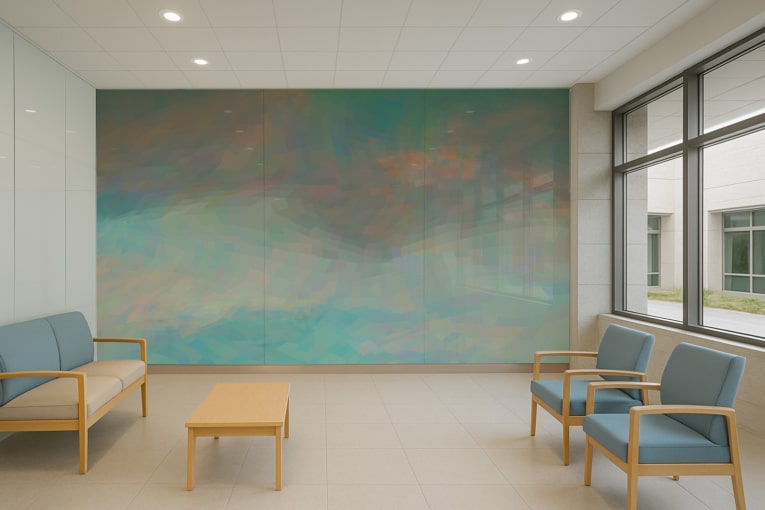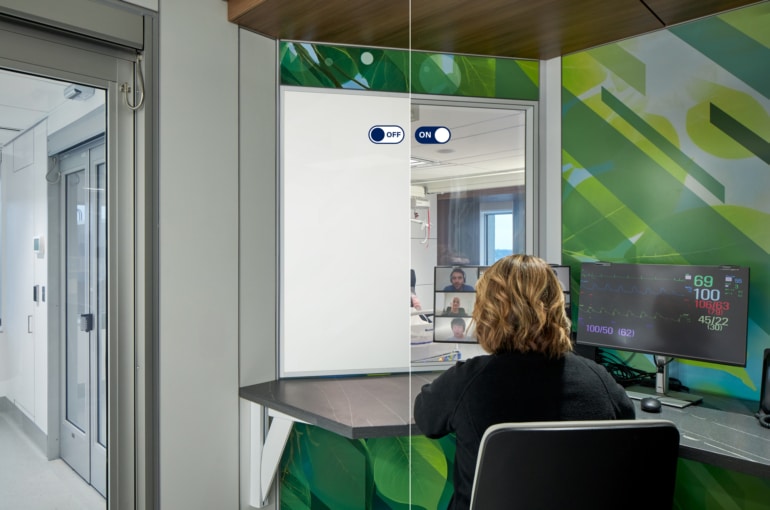The choice of materials in architecture can have a profound impact on the final outcome. Glass and resin are two frequently used materials in construction. While decorative resin has played a significant role in the past, a growing number of architects and builders are turning to glass as their preferred surface material. This shift in preference can be attributed to the many advantages that glass has over resin.
“Skyline Design’s decorative architectural glass hits all the points in terms of design flexibility, customization, durability, and its inherent pathogen resistance due to its lack of porosity. These qualities are being recognized by our specifiers in terms of design flexibility of not being limited to working within the “industry standard” sheet sizes of 4’ x 8’ and 5’ x 10’ sheet goods.”
— Mark Toth, National Sales Director
No Waste and Lower Costs to the End Users
Skyline Design fabricates glass exactly to the size specified up to 72” x 144” and that means that there is no waste, and the end user can save on costs. On the other hand, decorative resins are limited to 4′ x 8′ and 5′ x 10′ standard sheet goods, which can result in more waste and increased costs for the end user.
Why Glass Outshines Resin: No Special Hardware Required
Glass is a structural material that can support itself, so no special hardware is required for installation. This feature can save on costs and labor for the end user. On the other hand, decorative resins require special structural support due to their inherent lack of structural rigidity, which adds to the product and installation costs.
Durable, Non-porous, and Easily Cleanable
Glass is an exceptionally durable material, capable of enduring frequent use and regular cleaning protocols without showing signs of wear and tear. This makes it an excellent choice for a wide range of architectural projects.
Glass is also non-porous, pathogen resistant, and easily maintained with standard healthcare cleaning agents, including bleach. In contrast, decorative resins easily scuff from carts, beds, and other healthcare equipment. Special cleaning protocols must be maintained to ensure proper cleaning agents are used to minimizing damage.
“Facilities Managers and end users are recognizing glass as a material from a durability and pathogen resistance standpoint – especially in the healthcare world where everyday maintenance and controlling Healthcare Acquired Infections (HAI’s) are a number one priority. Many healthcare facility organizations have made Skyline Design a standard for their projects moving forward.”
— Mark Toth, National Sales Director
Why Glass Outshines Resin: Durability Proven by the Long Warranty
The durability of the glass is further evidenced by the long warranty offered by Skyline Design. The company offers a warranty of 5 years for laminated products, and 10 years for Vitracolor, Backpainted, and Frit Printed products whereas decorative resins only offer a 2-year limited warranty.
In architectural projects, glass is the better option compared to resin. Glass can be fabricated to exact specifications, requires no special hardware for installation, and is a more durable surface material for all applications. In addition, the longer warranty offered by Skyline Design further proves the durability of glass. If you are starting a new architectural project, consider using glass as the material of choice for a durable, cost-effective, and beautiful outcome.

Stay in the Glass Loop
Get the latest Skyline news and product info delivered to your inbox.






